A unique $3 denomination note issued by a New Jersey bank is among a small number of banknotes that survived the 1857 sinking of the fabled "Ship of Gold," the S.S. Central America, and soon will be offered to collectors for the first time.
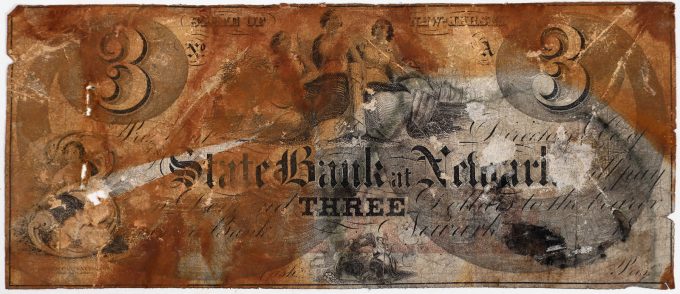
They are among the many highlights of California Gold Rush-era artifacts in an auction to be conducted on December 3, 2022 in Reno, Nevada and online by Holabird Western Americana Collections (www.HolabirdAmericana.com).
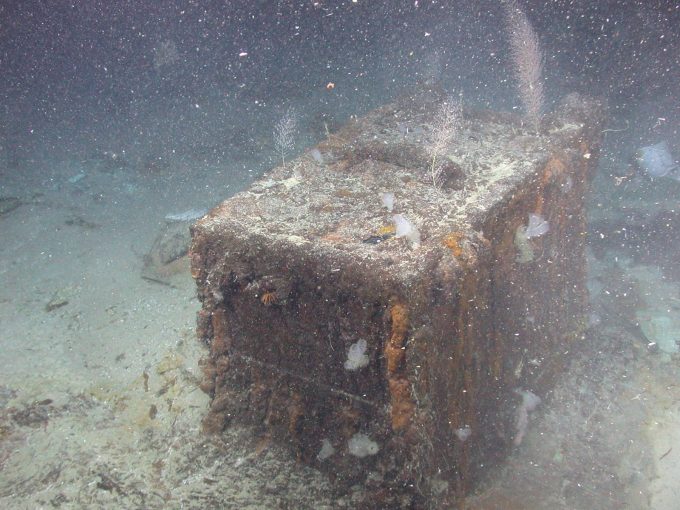
The $3 note was issued by the State Bank of Newark, New Jersey, and is the only known example to have been in circulation, apparently used to purchase a ticket on the legendary ship.
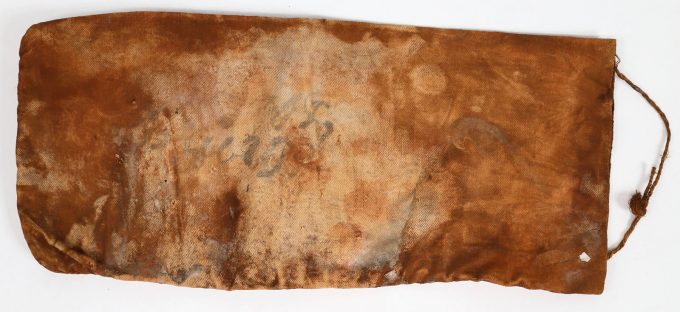
Other numismatic items recovered from the legendary ship, including gold treasure shipment boxes, gold miners’ pokes, and bags from the Purser’s safe that contained coins during the ill-fated voyage, are also in the first of two planned auctions of never-before-offered unique artifacts from the ship.
"Some collectors have been waiting for these extraordinary items to come on the market since the legendary, submerged ship was located in 1988 and Life magazine proclaimed it America’s greatest treasure ever found," said Fred Holabird, President of Holabird Western Americana Collections.
The auction will be conducted at the Reno, Nevada Convention Center and online on Saturday, December 3. A second auction of hundreds of additional one-of-a-kind artifacts retrieved from the famous shipwreck will be offered in February 2023.
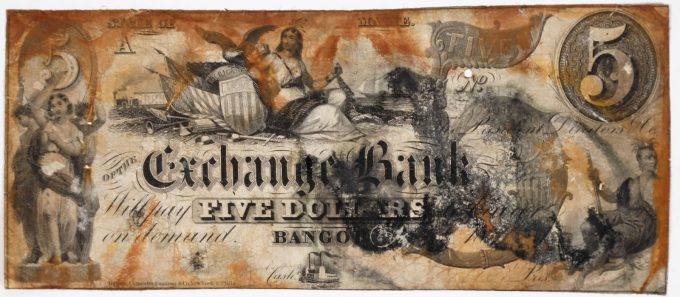
"There will be five recovered banknotes in the December auction. They are among 11 ‘broken bank’ notes found in the Purser’s safe that was retrieved from the seabed in 2014 after being submerged for 157 years about 7,200 feet below the surface of the Atlantic Ocean off North Carolina. The other recovered notes will be offered in an auction in February 2023," explained Holabird.
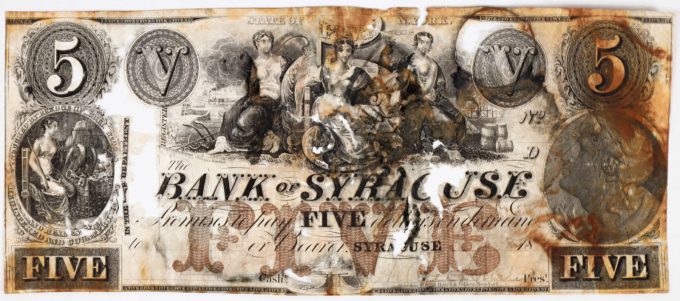
The five banknotes in the upcoming auction are:
- Bank of Syracuse, New York, $5, Haxby G12c.
- Exchange Bank, Bangor, Maine, $5, Haxby G8.
- North River Bank, New York, $20, Haxby G50c.
- Peoples Bank $5, Charleston, South Carolina, Haxby G2a.
- State Bank of Newark, New Jersey, $3.
The notes have been expertly conserved by the Northeast Document Conservation Center in Andover, Maryland.
"Some of the notes undoubtedly were used by passengers to pay for their tickets. The money was accepted perhaps because the Purser did not yet know the banks that issued the paper money had failed," explained Dwight Manley, Managing Partner of the California Gold Marketing Group which consigned the notes to the auction.
Cargo treasure boxes in the auction include the lid from a Wells Fargo gold shipment box and a treasure shipment box from San Francisco Gold Rush-era bankers Sather & Church. There are also gold miners’ pokes (small satchels or pouches usually made of buckskin) and a cloth bag found in the Purser’s safe with the word "Dimes" written in black ink on it, although records indicated it had held U.S. quarters and half-dollars.
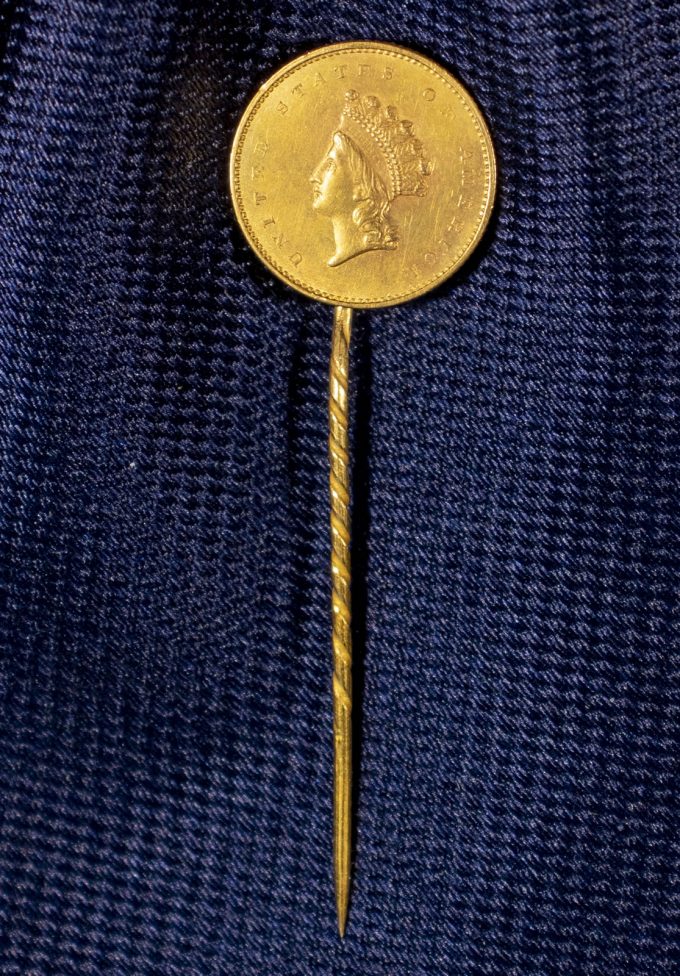
A gold stickpin crafted with a U.S. Type II $1 gold coin of 1854-1856, the Purser’s keys to the treasure storage room and a sampling of nine unconserved pocket change coins gathered from the seafloor around the shipwreck of the SS Central America will also be offered along with nearly 300 lots of recovered exquisite Gold Rush jewelry, vintage 1850s clothing and other unique artifacts from the legendary ship.
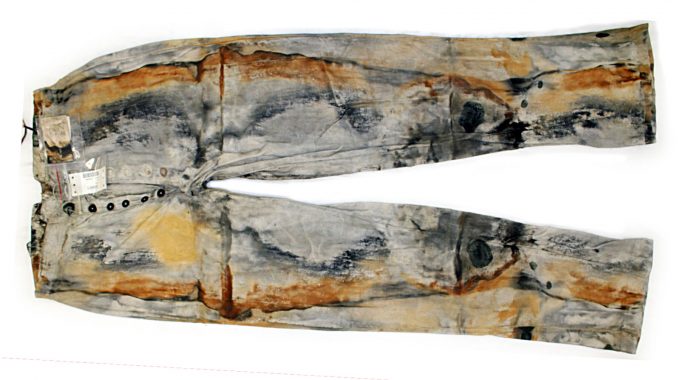
Clothing items include the important discovery of the oldest known Gold Rush-era miner’s work pants jeans with a button fly that may have been made by or for Levi Strauss in his early years in business. The pants and early Brooks Brothers undershirts with the company’s famous emblem that will also be in the auction were in the first-class passenger trunk of merchant and Mexican-American War military veteran John Dement of Oregon.
"Seemingly ordinary items from the passengers and crew today give us extraordinary insight into the everyday lives of the people who traveled on the steamship," said scientist Bob Evans who was on each of the recovery missions.
The tragedy of the S.S. Central America sinking took the lives of 425 of the ship’s 578 passengers and crewmembers, and the loss of the gold cargo was a major factor in the economically devastating financial Panic of 1857 in the United States.
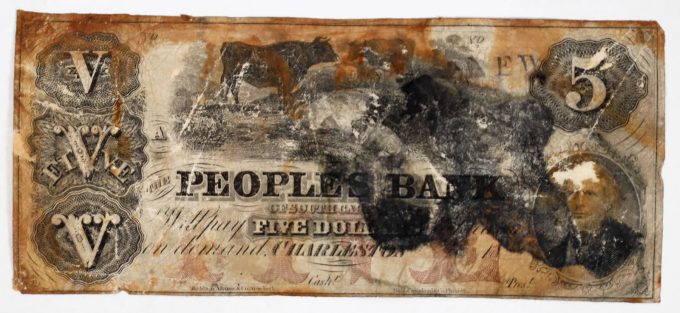
Insurance claims for the loss were paid in the 1850s and the company that discovered and retrieved the treasure starting in 1988 settled with the insurers and their successors in 1992. With court approval, California Gold Marketing Group acquired clear title to all of that remaining treasure in 1999 as well as all the items recovered in 2014.
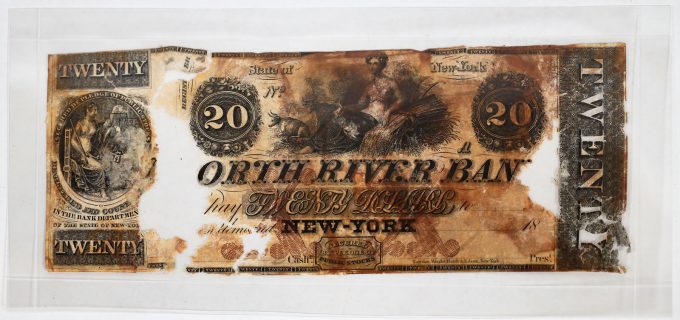
Holabird Western Americana Collections has prepared an extensive, limited edition 280-page catalog with dozens of previously unpublished illustrations of the S.S. Central America recovery operations, some reproduced in 3-D as shot during the discovery missions with a remote-controlled submersible nicknamed "Nemo." Copies of the catalog are available while supplies last for $100 each with the price refundable with any purchase from the auction. Auction lots can also be viewed online.
For additional information about the recovered artifacts auctions planned for December 2022 and February 2023 and to obtain a printed catalog, visit Holabird Western Americana Collections of Reno, Nevada at www.HolabirdAmericana.com, call 775-851-1859, or email info@holabirdamericana.com.






“…the loss of the gold cargo was a major factor in the economically devastating financial Panic of 1857″
clearly someone didn’t hear the phrase “not having all your eggs in one basket” when loading the ship.